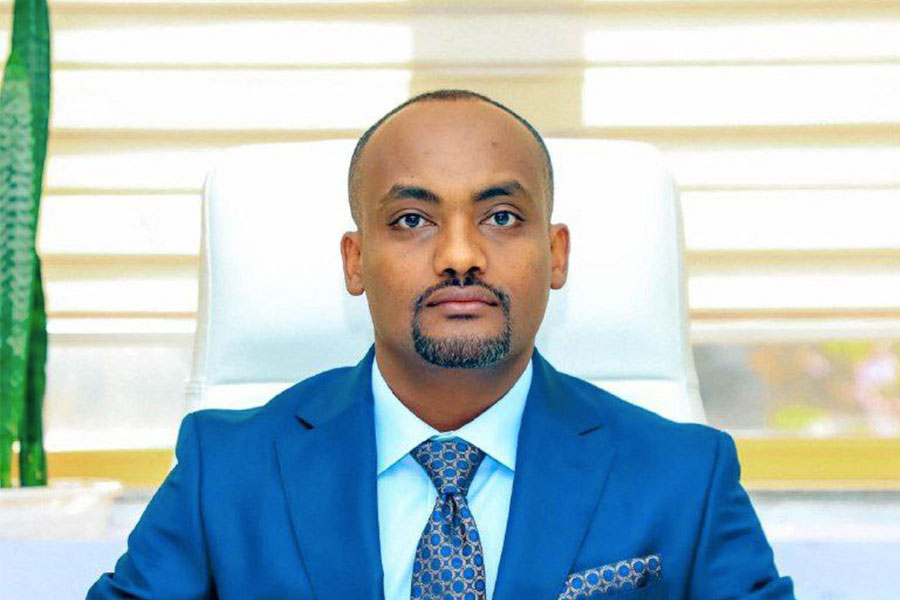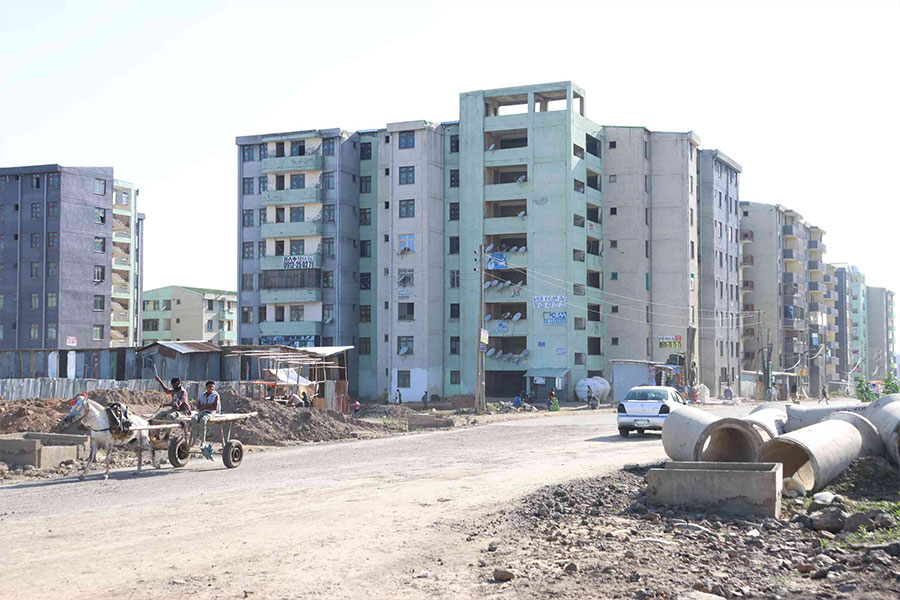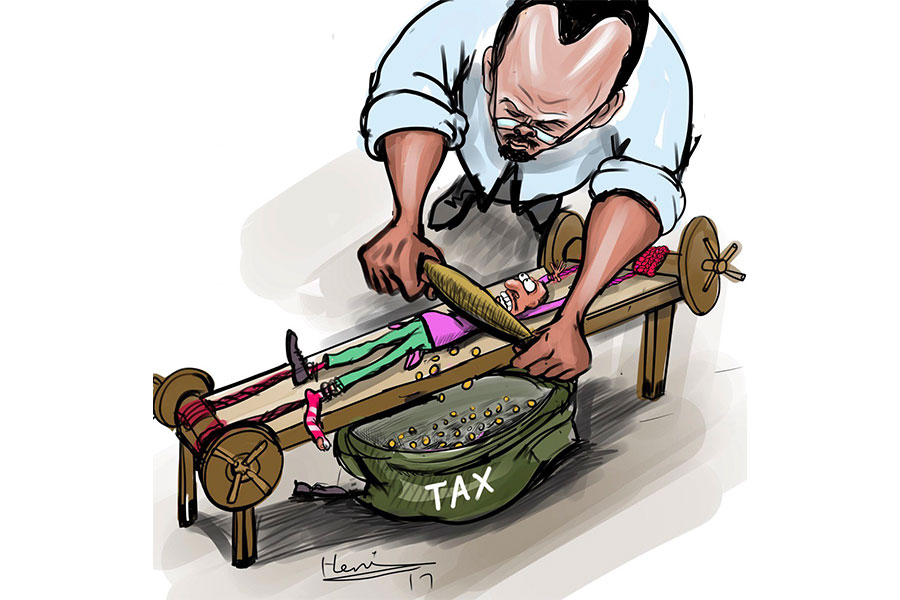
Oct 23 , 2021
By HAWI DADHI
Moody’s Investors Service, a global credit rating agency, has further downgraded Ethiopia’s creditworthiness from Caa1 to Caa2, citing delays and ambiguity in debt reprofiling, economic volatility and political instability in the country.
It is the second time the agency downgraded Ethiopia's rating this year. The Caa2 rating characterises a country's debt standing as poor, with high default risk. Moody's latest poor rating is analogous to Standard & Poor's CCC, a step lower than the CCC+ classification the agency gave Ethiopia last month.
Among the primary concerns raised by the rating agencies are negotiations with creditors on debt restructuring that is opening.
Ethiopia is one of the three African countries that have applied for debt restructuring under the G-20 common framework in February last year. The process has been moving slowly, frustrating the IMF officials. Last month, the Ministry of Finance announced the formation of a creditors committee chaired by France and China.
“No tangible developments have occurred other than the formation of a creditors committee,” reads the report from Moody's.
Decisions on what the debt treatment will involve are pending, and there is fear this would take time for Ethiopia to access official and market-based loans, according to Moody's. Liquidity risks have heightened, and associated default risks have increased to levels Moody's finds more consistent with a Caa2 rating.
Ethiopia owes external creditors close to 29.3 billion dollars, half of which goes to China. However, lack of clarity on the outstanding stock of Chinese debt to Ethiopia has become a stumbling block to move forward in the negotiations, according to a macroeconomist who spoke to Fortune on condition of anonymity.
"Unless that's resolved, the common framework won't make any progress," said the expert.
Alisa Strobel, a senior economist for Sub-Saharan Africa at IHS Markit, concurs.
The economist said that a lack of transparency over the debt owed to Chinese lenders, such as loans granted to state-owned enterprises, is often an issue for private creditors. Debt restructuring from major non-commercial lenders should ideally be completed first, according to Alisa.
Those keenly following this development do not see Chinese state-backed lenders pursuing wholesale debt forgiveness but opt for a bilateral debt restructuring. They fear debt forgiveness can set an undesirable precedent for other debtors to seek more favourable treatment on Chinese loans.
Ethiopia's ongoing civil war has not helped to shore up creditors' confidence that it can fulfil its commitments.
"There is certainly an element of heightened political instability that comes into play on why we see delays in the restructuring of the country's official sovereign debt," said Alisa.
Moody's report blames growing political uncertainty, threats of sanctions and suspension of development assistance for defaulting. The report says the political tension is unlikely to be resolved in the foreseeable future and has heightened these risks.
"Such deep tensions and conflict are likely weighing on some creditors' ability and readiness to provide financing or debt relief, further contributing to default risk," reads Moody's report.
The credit agencies are concerned the debt negotiations might entail comparable debt adjustments for private creditors. The report from Moody's claims the longer official creditors take to begin talks and agree on a debt treatment, the higher the risk for private-sector creditors involved. Public creditors would identify parameters for equal treatment, a consideration in a debt-restructuring agreement with the Paris Club creditors that the debtor should secure at least comparable relief from other creditors, says Eyob Tekalign (PhD), a state minister for Finance, in his media briefings last month.
However, experts like Alisa are under the impression that the involvement of private creditors would be unlikely or minor at best.
"We also have to keep in mind that the bulk of Ethiopia's public external debt is official multilateral and bilateral debt," she said.
Close to a quarter of Ethiopia's outstanding external debt is owed to private creditors.
Despite the consecutive downgrading of credit ratings, Ethiopian officials and experts remain bullish that it will not impact the country's borrowing ability to take commercial loans from private creditors. The most significant consequence of a poor credit rating is Ethiopia's Eurobond. The yield rate of Ethiopia's Eurobond maturing in 2024 has reached 13.8pc, double what it went for a year ago.
Experts urge Ethiopian authorities to improve the prevailing political, economic and external relations.
A two-step approach is needed, according to Alisa. Resolving the war in the northern part positively signals the international community and speeds up the Common Framework process. The expert cautions that the lack of progress in entering new facilities with the IMF would likely hinder Ethiopia's efforts to renegotiate its international debt under the G20 common framework
"Improving international relations and restoring Ethiopia's reputation is key," said Alisa. "Ethiopian authorities have shown a willingness to work with the IMF in the recent past."
PUBLISHED ON
Oct 23,2021 [ VOL
22 , NO
1121]

Fortune News | Feb 18,2024

Life Matters | Mar 06,2021

Commentaries | Oct 14,2023

Commentaries | Apr 03,2021

Radar | Aug 05,2023

Fortune News | May 28,2022

Editorial | Sep 30,2023

Viewpoints | Sep 08,2024

Fortune News | May 11,2025

Radar | Mar 23,2024

Dec 22 , 2024 . By TIZITA SHEWAFERAW
Charged with transforming colossal state-owned enterprises into modern and competitiv...

Aug 18 , 2024 . By AKSAH ITALO
Although predictable Yonas Zerihun's job in the ride-hailing service is not immune to...

Jul 28 , 2024 . By TIZITA SHEWAFERAW
Unhabitual, perhaps too many, Samuel Gebreyohannes, 38, used to occasionally enjoy a couple of beers at breakfast. However, he recently swit...

Jul 13 , 2024 . By AKSAH ITALO
Investors who rely on tractors, trucks, and field vehicles for commuting, transporting commodities, and f...

Jul 26 , 2025
Teaching hospitals everywhere juggle three jobs at once: teaching, curing, and discov...

Jul 19 , 2025
Parliament is no stranger to frantic bursts of productivity. Even so, the vote last w...

Jul 12 , 2025
Political leaders and their policy advisors often promise great leaps forward, yet th...

Jul 5 , 2025
Six years ago, Ethiopia was the darling of international liberal commentators. A year...